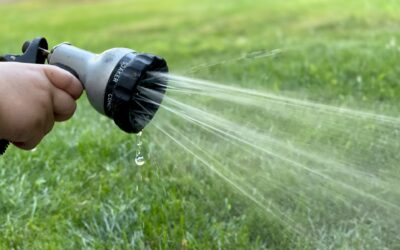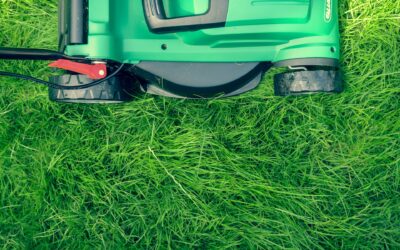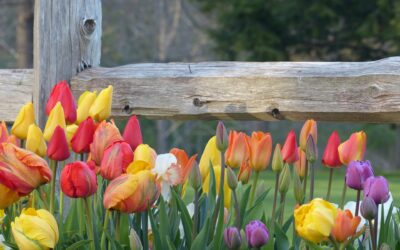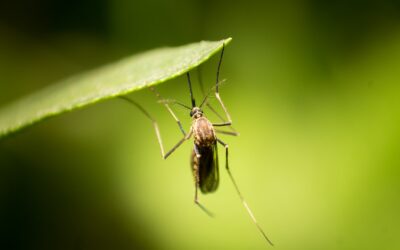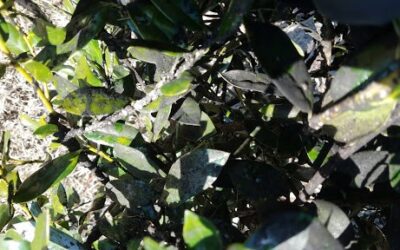Frequently Asked Questions
We are more than happy to help you learn more about proper lawn care and pest control. If you don’t see the answer to the question you have, please contact us.
What is a pre emergent?
Pre emergent is applied to the lawn to stop the germination of weed seeds and kill weed seedlings. Pre emergent is effective for around 90 days and too much pre emergent can damage your grass. Pre emergent makes no differentiation between wanted seeds (flowers or fescue) and weed seeds. It is important, therefore, to notify us if you plan to seed your lawn.
Why is my bermuda lawn not greening up as quickly as my neighbors?
There are many different varieties of Bermuda and yours may have a different trigger for greening than your neighbors. Your neighbor may have mowed his yard lower than yours, allowing heat and light to penetrate to the soil surface, allowing earlier greening.
How much watering do I need to do?
First, the short answer… your rate of watering should be coordinated with your rate of fertilization. Our fertilization program is designed to compliment a once a week watering for a duration of one hour over the total area of turf. More frequent watering will leach the fertilizer’s nutrients from the soil before the grass can absorb it. In other words, increasing the frequency of watering can stress your lawn.
What about watering more frequently for a shorter duration each time?
Frequent watering for shorter duration will still leach nutrients from the soil, but, more importantly, this practice will create a weak root system. One hour of watering should allow the water to penetrate six to twelve inches into the soil. This penetration causes the roots to follow and grow deep below the surface. In times of drought, this good root system can pull moisture trapped further below the surface making the turf more durable. Shorter duration watering has only shallow penetration causing the root system to stay near the surface. In times of drought, this turf is more likely brown or even die.
When I water for an hour, my yard just holds water? What should I do?
This is generally due to compaction of the soil. For smaller problems, the lawn should be aerated* in order to loosen the soil and allow water to penetrate the surface. In the mean time, try watering until it starts to form puddles and stop. Allow the soil more time to soak up the water. When the puddles are gone, resume watering. Repeat this until your cumulative watering time equals one hour. For larger problems, consult a landscaping or irrigation specialist.
Why are there brown patches or bare spots in my lawn?
Several things can cause brown or bare spots. Female dog urine will spot a yard. If the spots are under trees, show up in summer and during times of drought, trees have sucked all the moisture and nutrients out of the area. Early spring spotting could also be caused by fungus or excessive fertilization in the previous season.
What is aeration?
Aeration is pulling small plugs out of the turf in order to allow water,air, and fertilizers penetrate deeper into soil. This promotes a more extensive root system. A deeply rooted system allows the plant to withstand hot, dry weather by accessing water trapped deeper beneath the surface.
How often should I aerate?
Memphis has a clay soil which can easily become compacted. Aeration once a year seems to be sufficient to achieve the desired result.
I am from Anothertown, USA and watered and fertilized more/less frequently than you are suggesting and my lawn looked great? Why is your service set up differently?
The climate, soil, and grass types of a given area determine your watering and fertilization program. Clay compacted soils retain more water and nutrients than sandy soils. Some areas get more or less rainfall than we do. We have simply set up the best program for our environment.
What is overseeding?
Some customers might want a green yard year round. As Bermuda lawns go dormant they may want to add color to their lawns by planting or overseeding a cool season grass, usually annual or perennial rye, over a dormant Bermuda lawn. Zoysia grows in too thick to overseed. This seeding over Bermuda lawns will provide a green grass over the winter. We do not recommend overseeding on Bermuda lawns. The winter grass will open up areas in the Bermuda yard which will become available for weeds in our summer and will rob the grass of nutrients necessary for strong growth during its upcoming active growing season. If overseeding Bermuda lawn, use only rye so that it will completely die out in summer and not cause an unsightly yard in early season. Sow in late September or early October and keep the seeds moist until germination and then treat like ordinary grass.
For Fescue, yearly overseeding is highly recommended. Our summers take a toll on fescue and thins turf. Reseed with fescue seed in late September or early October, keep wet until germination and then treat like ordinary grass.
Safari Shares
Thriving in the Summer Heat: Essential Watering Tips for a Lush Green Lawn, by Safari Lawn
As the summer sun blazes down, keeping your lawn hydrated becomes crucial for its health and beauty. Proper watering techniques play a vital role in maintaining a lush green lawn despite the scorching temperatures. In this article, Safari Lawn shares essential...
Mastering Yard Maintenance: 5 Essential Tips for Cutting Your Lawn, Provided by Safari Lawn
Maintaining a well-groomed yard not only enhances the beauty of your property but also contributes to a healthier lawn. With the right techniques and tools, you can achieve a pristine cut that promotes lush growth. In this article, Safari Lawn shares five expert tips...
Elevate Your Yard: DIY Landscaping Tips for Beautiful Flowers, Striking Rocks, and a Greener Lawn, Enhanced by Safari Lawn’s Lawn Spray Service
Turn your yard into a picturesque oasis by incorporating vibrant flowers, eye-catching rocks, and a lush green lawn. In this DIY landscaping article, we'll guide you through transforming your outdoor space with the beauty of flowers, the allure of decorative rocks,...
Mosquitoes Are Back in Memphis: Tips to Keep Your Yard Mosquito-Free and Introducing Safari Lawn’s Mosquito Control Service
As the warm weather arrives in Memphis, we at Safari Lawn want to help you tackle the return of mosquitoes. We understand the frustrations and health risks associated with these buzzing intruders. That's why we're sharing our expert tips to keep your yard...
You might consider doing this for your shrubs while it is cold! They will thank you.
For your trees and shrubs, one of the most important and environmentally friendly applications of the year is being done now! Dormant oils are one of our best tools against the unwanted pest population in your landscape shrubs. Insects such as scale, mites, and aphids...
What is the best pre emergent for Memphis Lawns in the Spring?
What is the best pre emergent for Memphis lawns in the Spring?This is for all you DIY folks that want to know what the professionals would do. I will give these talks at garden centers occasionally.This is a shout out to Urban Earth in Midtown Memphis, TN,...

